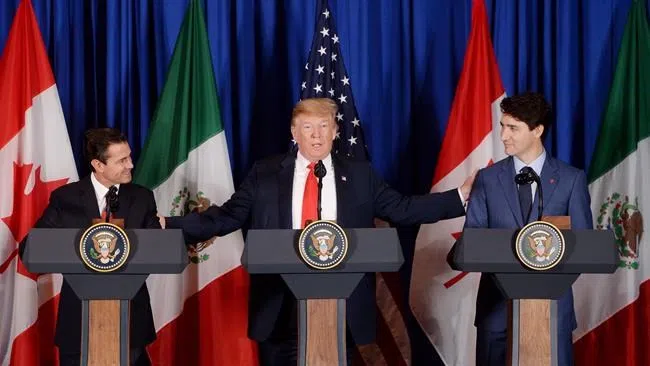
Canada to flex legal muscle on tariffs following trade agreement signing
BUENOS AIRES, Argentina — Canada is confident it will win legal challenges to American steel and aluminum tariffs that remain despite the new NAFTA deal, Foreign Affairs Minister Chrystia Freeland said Friday in Buenos Aires following a high-profile signing ceremony for the trade treaty.
“We do not accept the legality of these tariffs,” she said. “We have challenged and are continuing our legal challenges. We think this is simply wrong and frankly, we are very confident we are going to win those legal challenges.”
Freeland’s remarks offer a glimpse into the political and legal heavy lifting set to follow Friday’s signing of the trade pact — an agreement reached through hand-wringing negotiations and a ceremony confirmed only at the 11th hour.
U.S. President Donald Trump conceded Friday the process to reach the United-States-Mexico-Canada Agreement, or USMCA, was a battle but went on to say that “battles sometimes make great friendships.”